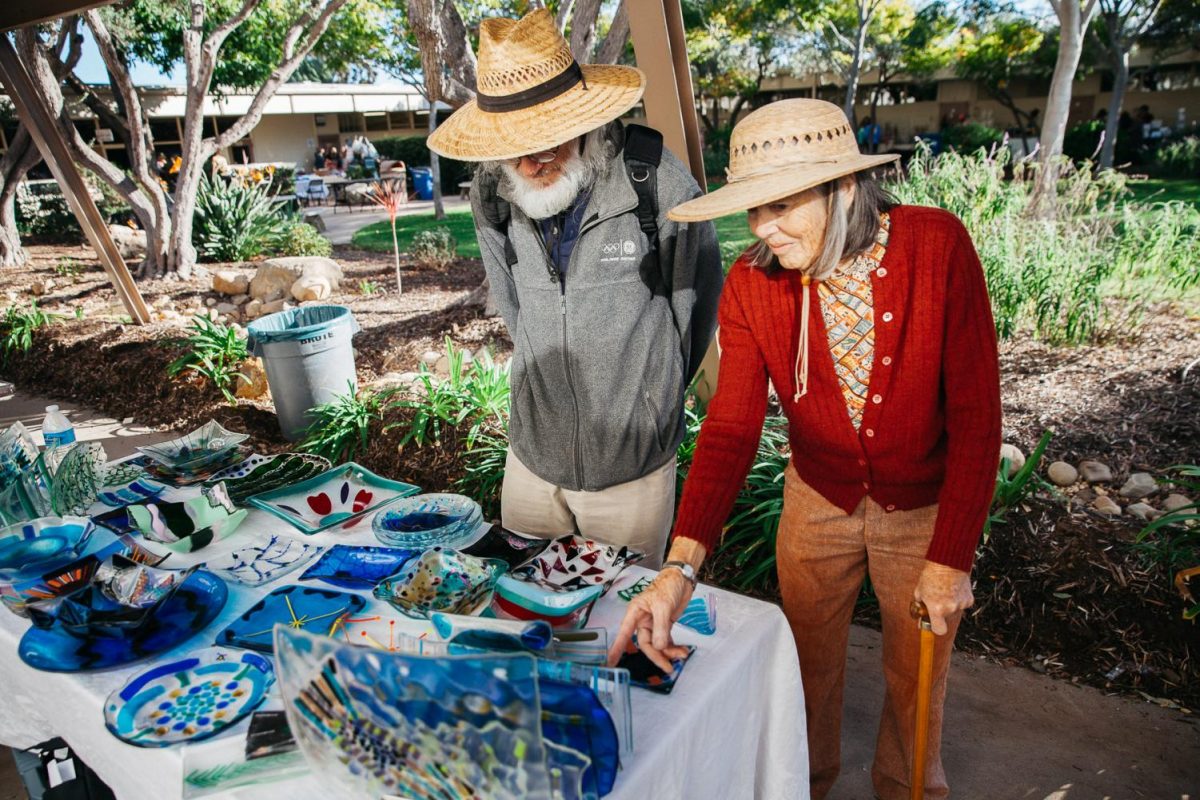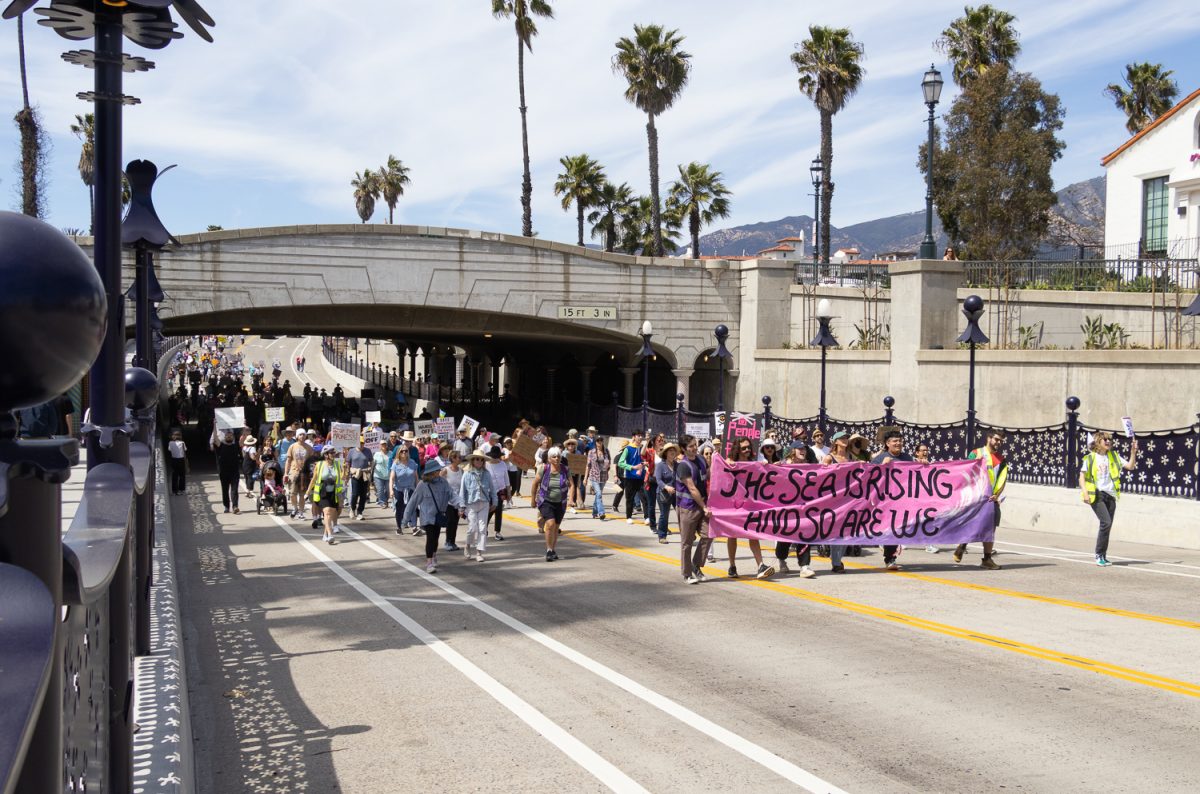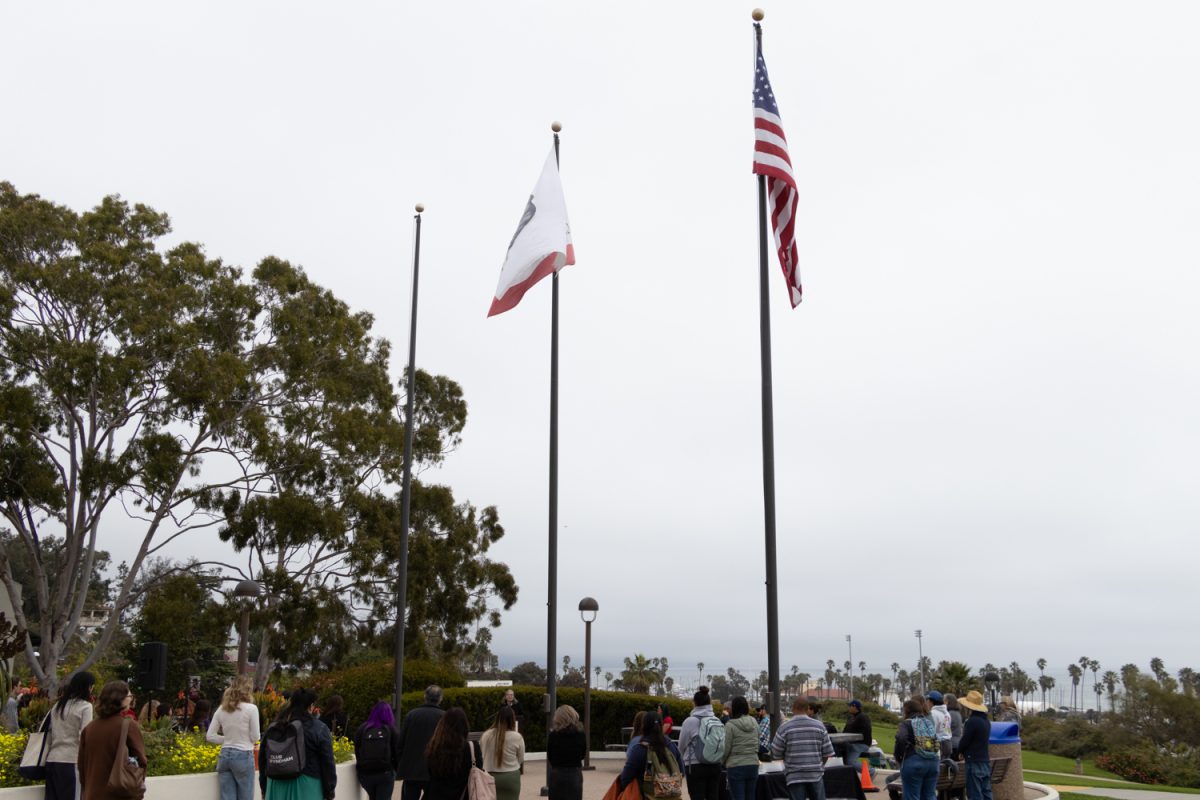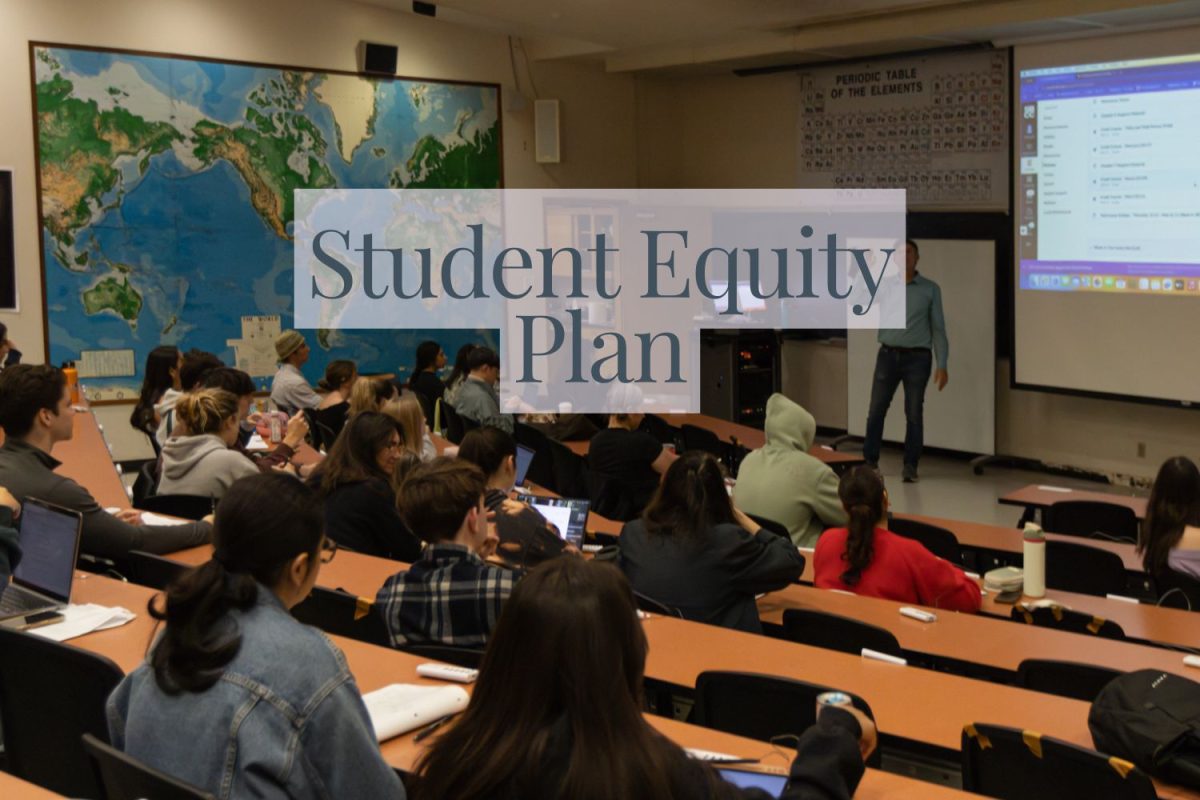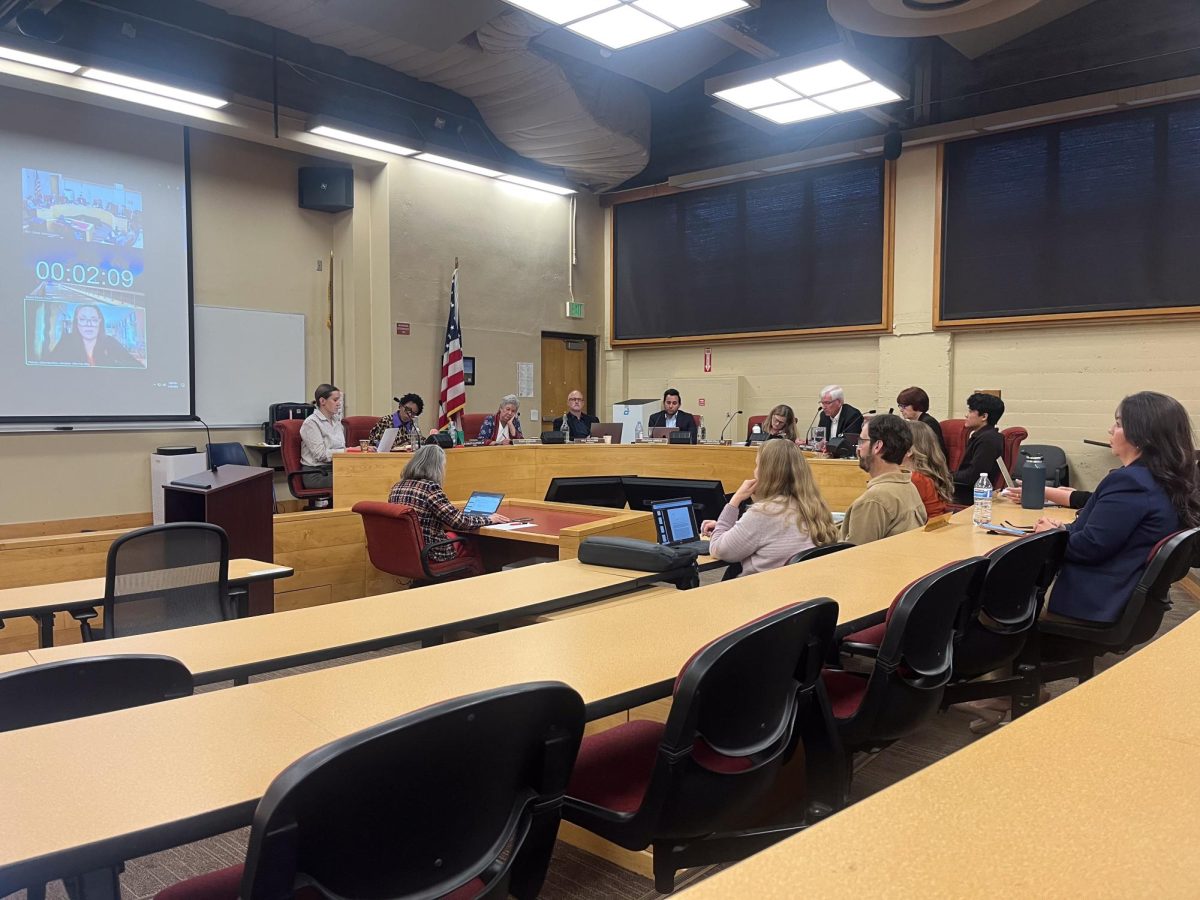For the third consecutive year, guest speaker and survivor of the Rwanda genocide Frederick Ndabaramiye spoke to City College students on several occasions starting Wednesday Oct. 13.
“It’s an inspiring story,” Carola Smith, senior director of International Programs, said. “It puts things in perception.”
A couple years ago, Santa Barbara Middle School Dean John Seigel-Boettner went to Rwanda with his school on an educational program. There they met Ndabaramiye and were inspired by his story, and they asked him to come to Santa Barbara and tell it.
The genocide in Rwanda began in 1994 when Ndabaramiye was 12-years-old. Within 100 days, 800,000 people were killed in the small Central African country.
In 1998, when Ndabaramiye was 15, he took the bus to see his aunt in a neighborhood village. Rebels ambushed the bus and demanded everyone to step out with their hands above their heads. After tying them all up, the rebels ordered Ndabaramiye to kill them with a machete.
Ndabaramiye refused, and was instead forced to watch the rebels slaughter his fellow passengers in front of his eyes. Then they cut off one of his hands with a machete. He said he begged them to leave at least two fingers, but they didn’t, and cut off his other hand too. He tried to escape but fell back down, he said.
Later, two girls found him and took him to their house. It took Ndabaramiye one year to recover at a hospital. Determined to survive, he learned to live a life without arms.
Ndabaramiye now comes to City College every fall to speak, and Smith said it’s a great opportunity for student who live in such a sheltered environment to learn about history very remote to their own.
“From that day on we felt that he’s a part of our family,” Tina Kistler, advisor of the Student’s Coalition Club said.
Kistler still gets emotional when speaking about the brutal events even though she has heard the story several times.
“After students hear the story they see their personal problems as not that big,” she said.
In order to build a house for children in Rwanda, City College’s student coalition club assembled fundraisers, and the house now bears City College’s name.
Andreas Schwenk, president of the International Students Association, listened to Ndabaramiye’s story, and described it as “horrifying but interesting.” The association also co-sponsored the guest lecture by Ndabaramiye.
“There is never enough information about these kinds of stories,” Schwenk said. “People need to be aware of what’s going on.”
During Ndabaramiye’s speech, he showed a power point presentation with personally illustrated pictures to help tell his story from the beginning.
The presentation shows how he founded the Ubumwe Center in Gisenyi, Rwanda, together with Jessica McCall and Zackary Dusingizimana.
The center stands for “unity and hope for the disabled and genocide survivors,” and it provides a forum for people to talk about what happened. They also teach job skills and create employment opportunities.
Ndabaramiye now works with organizations in America and he tries to come up with ideas of how to sell the work they create at the center here. He hopes that people from the center can come to America and talk about their experiences like he did.








